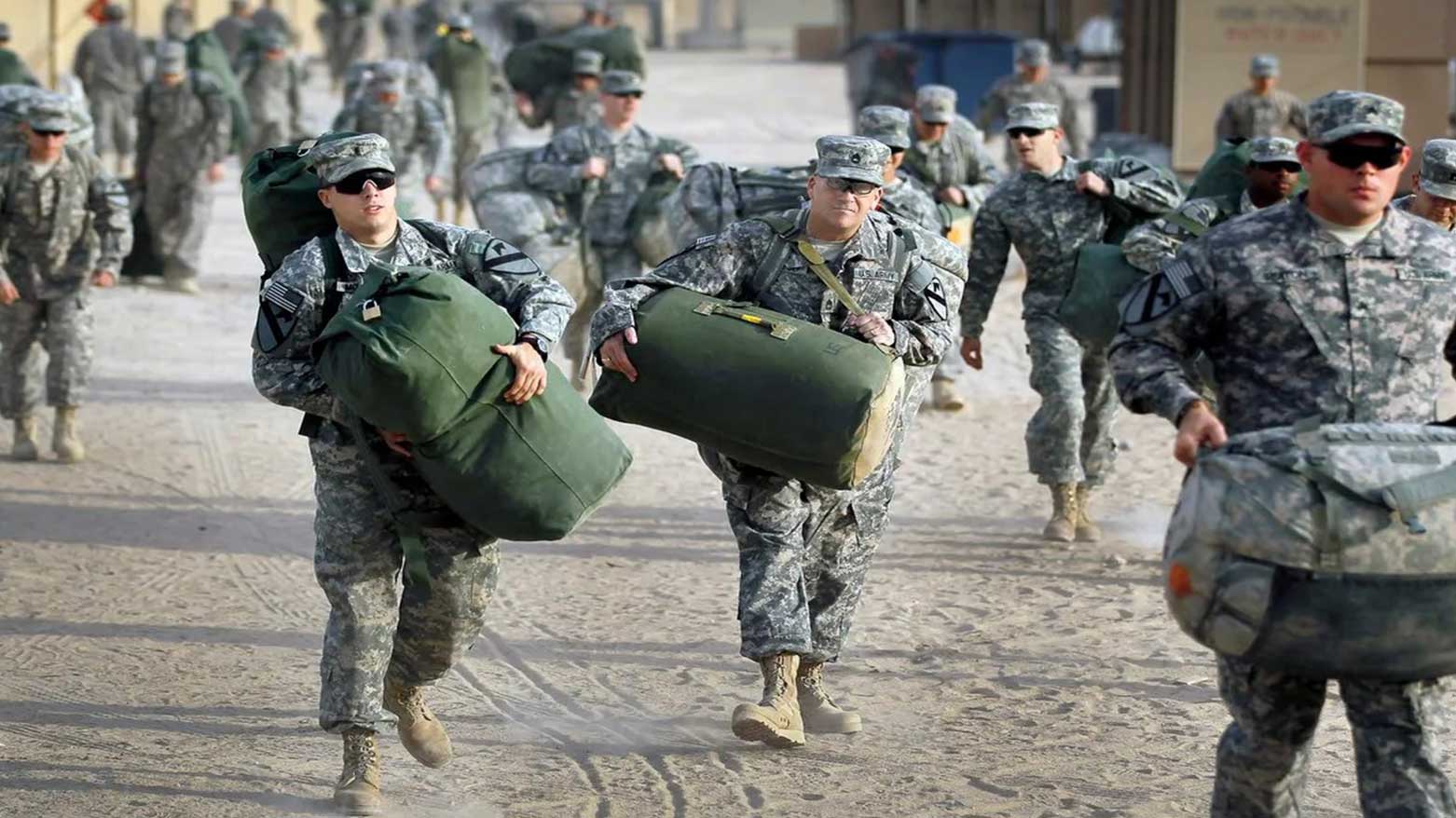Iraq to End Coalition Mission in Baghdad and Ain al-Asad by September, Advisor Says
Allawi emphasized that Iraq and the coalition have agreed on a two-stage timeline, with the first phase of withdrawal set for September 2025 and the final stage expected to be completed in September 2026.

ERBIL (Kurdistan24) — The Iraqi government announced on Sunday that the mission of the U.S.-led international coalition in Iraq will formally end in September 2025, marking a major shift in the country’s security framework. The announcement was made by Hussein Allawi, advisor to Prime Minister Mohammed Shia’ al-Sudani, according to the state-run Iraqi News Agency (INA).
Allawi stated that the coalition’s presence in its Baghdad headquarters and the Ain al-Asad airbase will conclude in September as part of an agreement reached between Iraq and coalition members. The decision aligns with the government’s program to strengthen Iraq’s armed forces and move toward bilateral defense partnerships.
“The Iraqi government is committed to its program of building the armed forces and ending the coalition’s mission, while transitioning relations with coalition countries into stable bilateral defense arrangements guided by political, economic, and cultural ties,” Allawi told INA.
He emphasized that Iraq and the coalition have agreed on a two-stage timeline, with the first phase of withdrawal set for September 2025 and the final stage expected to be completed in September 2026. Beyond that, Iraq intends to maintain advisory and capacity-building cooperation with international partners.
“This reflects the government’s vision of creating sustainable relations in all fields, including the security sector,” Allawi explained, highlighting the work of the joint military committee that has been overseeing discussions on the coalition’s mission.
The advisor stressed that this transition signals Iraq’s commitment to normalizing relations with the United States and other coalition members, framing them within bilateral agreements rather than multinational military structures. “It will return Iraqi-American and Iraq-coalition ties to the kind of strategic framework agreements that existed before the fall of Mosul to ISIS in 2014,” he added.
The planned withdrawal marks the end of more than a decade of international military involvement in Iraq following the rise of ISIS. The U.S.-led coalition was first formed in 2014 after ISIS captured large swathes of northern and western Iraq, including Mosul, prompting Baghdad to request international support. At its height, the coalition provided airpower, training, and logistical assistance to Iraqi forces and the Kurdish Peshmerga in their fight to liberate occupied territories.
While Iraq declared victory over ISIS in December 2017, coalition forces continued to play an advisory and counterterrorism role. However, their presence has been a point of contention in Iraqi politics, with powerful factions calling for a full withdrawal, particularly after U.S.-Iran tensions escalated on Iraqi soil in recent years.
In 2021, Washington and Baghdad agreed to formally shift the U.S. role from combat to training and advisory missions, but thousands of coalition personnel remained stationed in Iraq. The new withdrawal timeline signals Baghdad’s push to get rid of the U.S. and other coalition troops' presence on Iraqi soil. Iraq’s effort to reshape foreign military ties into bilateral defense pacts reflects a broader strategy of balancing relations with both Western and regional partners.
The September 2026 deadline will therefore not only mark the end of an era for Iraq’s post-ISIS security landscape but also test the ability of its armed forces to stand fully on their own.
Internally, the debate over the future of U.S.-led forces has exposed sharp divisions among the Iraqi political factions. Pro-Iran groups, many with ties to the Popular Mobilization Forces (PMF), have been vocal in demanding a complete withdrawal, arguing that the presence of foreign troops undermines Iraq’s sovereignty and security independence. Their calls intensified following the U.S. drone strikes in January 2024, which targeted a convoy in Baghdad, killing several senior PMF commanders, including key figures linked to factions aligned with Iran.
Among those killed was Abu Baqir al-Saadi, a senior commander in Kataib Hezbollah, one of the most powerful Iran-backed groups in Iraq. The U.S. justified the strike as a defensive measure in response to repeated attacks on American military and diplomatic facilities in Iraq and Syria.
The incident not only heightened anti-American sentiment but also reinforced the view among Iraqi political factions that foreign forces were acting unilaterally and undermining Iraq’s sovereignty. It became a major rallying point for pro-Iran groups pushing for the full withdrawal of U.S. and coalition troops.
In contrast, more moderate and nationalist factions emphasize the importance of maintaining an international advisory presence, at least in the short term. They argue that Iraqi forces still benefit from intelligence-sharing, air support, and advanced training provided by coalition partners — particularly in preventing a resurgence of ISIS sleeper cells. These arguments were echoed during parliamentary debates earlier this year, when lawmakers split over motions calling for an expedited withdrawal, revealing the depth of Iraq’s internal divisions.
The ongoing dispute reflects the broader struggle within Iraq’s political landscape between factions aligned with Tehran’s agenda and those seeking to balance Iraq’s ties with both regional neighbors and Western allies.